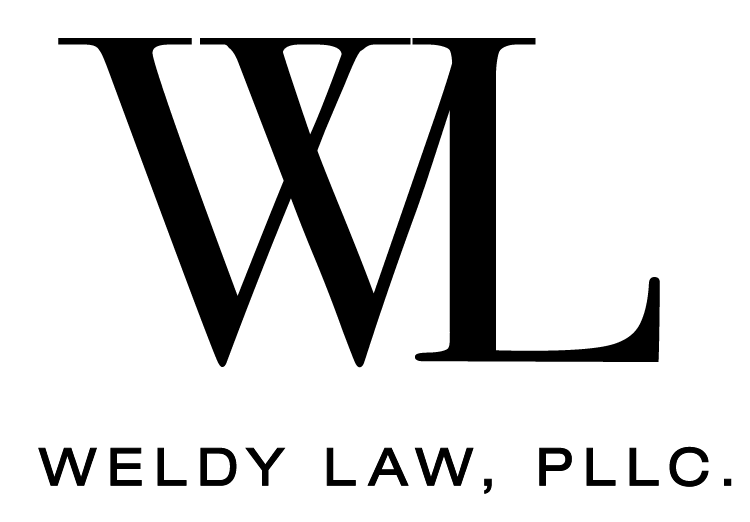Blog Post
The death of a loved one is a burdensome time.
When walking through a season of loss, a question that many want to know when dealing with probate is how long will the probate process take? You may be surprised at how much time it takes to tie up the loose ends of your loved one’s financial life until you consider how many loose ends there may be to address.
Probate is the legal process through which your loved one’s personal representative handles any obligations your loved one left behind. Then the representative may distribute your family member’s belongings according to a will or the laws of Texas.
The following list includes a few factors that may affect the length of time the probate process requires are as follows:
Complexity of the estate: If your loved one had a car, a house and a bank account, probate should go quickly. However, if the property includes a family business, real estate in other parts of the country or other complex assets, you and your fellow beneficiaries can expect probate to take more time. As with most aspects of life– complexity of issues to be addressed creates a longer timeline.
Distance: Probate documents often require original signatures, which may be delayed if you have to travel to sign them.
Number of beneficiaries and location of beneficiaries: As with any process where decisions and agreements are necessary, multiple recipients may complicate probate, especially if they dispute the will. Additionally, probate may take more time as documents requiring multiple signatures travel from party to party.
While the probate process may be combursome, probate is essential to ensuring the respect and legitimate handling of your loved one’s estate.
The above blog is for informational purposes only and is not legal advice nor does any information or communication with this website create an attorney-client relationship.
Possessing the right knowledge, skill-sets, and abilities can often make attending to obligations of an executor much more doable. In particular, individuals who know what to expect when performing executor duties during a Texas probate administration may find themselves going through the proceedings much more easily.
When it comes to being an competent executor, it is best to have the ability to address the many tasks that need handling. Individuals who are trustworthy and financially savvy may have an easier time distributing and protecting assets as necessary. Of course, the person will also need to have the physical and mental capacity to act as executor, so it is often prudent for the named executor to have a considerable probability of outliving the testator.
Other information that could help an executor through probate is a personal relationship or knowledge of the deceased. This knowledge could help the party feel more confident in understanding the instructions in the will and what actions the deceased would feel comfortable with as distributions are made. This closeness may also prove useful when it comes to uncovering debts or other financial aspects that may need reconciling as a close loved one may already have this information.
Of course, executors may not have all of the knowledge they need to go through the probate administration process successfully. However, that does not have to be an intimidating thought. Texas executors could utilize local legal resources to gain information on their roles as executor and the probate process. Additionally, an executor could consult with an attorney who could assist her or him throughout the proceedings.
The above blog is for informational purposes only and is not legal advice nor does any information or communication with this website create an attorney-client relationship.
As the American population ages, adult children of seniors are embarking on a journey to help their aging parents and protect themselves against the uncertainty in the legal system and in life. Let’s go through some of the fundamental planning options available:
First, we should note that not all estate plans look the same. Each plan should be uniquely customized to the individual and his or her needs. While some plans focus on simplicity, others may be designed for helping a family with a special need or designed for tax-savings. Estate Plans may be created to accomplish an array of goals, and it’s important to realize that estate plans are not one-size-fits-all. Plans should be drafted by qualified attorneys who understand a client’s needs and are able to help the client reach their goal and establish a safe-guard of the client’s legacy. Second, don’t be overwhelmed by the term “estate planning.” You don’t need to be extremely wealthy or have multiple properties or businesses to benefit from estate planning. An estate plan is most effective when it accurately fits the client’s needs while offering a sense of peace that in life’s most difficult time your legacy can be maintained. Most everyone should have a few basic documents such as:
Will: A Will stipulates how a person’s property will be managed and distributed at death. Importantly, it also allows the testator to appoint an executor (the person who is legally in charge of the estate). The Will can also indicate whether a person wants an independent administration, which typically entails less involvement by the court and lower fees.
Durable Power of Attorney: A power of attorney allows the senior citizen to appoint a trusted person to make financial and property decisions for them (which is often done if the senior later has compacity issues). These functions may include duties like management of bank accounts, stocks and bonds, and tax matters.
Medical Powers of Attorney: A medical power of attorney allows someone to nominate an agent to make medical decisions if the need arises. Consider a situation where a person has dementia or another condition that gets progressively worse. Eventually, the person will likely be unable of making their own medical decisions and will need an agent acting legally to do make decisions on their behalf.
Additional Helpful Planning Instruments: In addition to those listed above, other helpful advance planning may include:
-
- Guardianship documents
- Establishing banking accounts payable on death to a senior’s chosen beneficiaries;
- Utilizing real property deeds that transfer property automatically upon the death of the testator;
- Trusts that are designed to help allow a senior to qualify for government programs that assist in paying for nursing home care;
- Legal directives that express the senior’s preferences regarding life-sustaining medical treatment if they are in a terminal or irreversible medical state or condition.
When executed properly, most estate plans are not overly expensive or cumbersome. Whether you are a senior citizen who feels that you need to protect yourself or the adult child of a senior who may become responsible for your parent’s future care, Weldy Law, PLLC can help you. Weldy Law, PLLC frequently designs estate plans for people from all walks of life and with varying needs, resources, objectives, and goals.
The above blog is for informational purposes only and is not legal advice nor does any information or communication with this website create an attorney-client relationship.
Trusts are useful tools used in estate planning that help people plan and prepare for an array of life events including tax planning, property distribution, and asset protection. This blog will highlight the general components of a trust in an effort to provide an overview of the makings of a basic trust.
One of the most favorable aspects of utilizing Trusts in your estate plan is that many of the following components can be mixed and matched to create an ideal Trust to meet an individual’s needs.
A Trust document starts by identifying the person who creates the trust, this person is known as the Settlor. The Trust document then identifies the beneficiaries. The Beneficiary is the person(s) for whose benefit property is held in Trust. Next, the Trust document defines the distribution parameters and identifies the trust property, sometimes referred to as the Corpus of the Trust. A Trust document then will typically specify the duration or life of the Trust, identify the Trustee and the Trustee’s powers, duties, liabilities, and remedies.
The above discussed components are typical in most written Trust documents that are intentionally created by a Settlor to formalize the way a party, the Trustee, manages and distributes property to or for the benefit of an intended Beneficiary.
Do you have questions about trusts and how they may benefit your goals in protecting your legacy? If you have any estate planning questions, Weldy Law, PLLC is here to help, contact our office to schedule a consultation.
The above blog is for informational purposes only and is not legal advice nor does any information or communication with this website create an attorney-client relationship.
As the population in America grows older, it’s becoming common for adult children to be called upon to care for their sick or aging parents. Typically, this situation begins with the adult child helping with bills, physician appointments, medication, and transportation as needed. Eventually, this can evolve into almost a full-time job of caring for a parent. Despite the life-altering commitment, these adult children make to their parents, occasionally the law stands in the way of the adult children being able to make timely decisions regarding finances or medical decisions for their elderly parent.
Common Scenario: Sarah is caring for her 90-year-old mother with Dementia. At first, Sarah would have mom sign checks from her account to pay bills and would accompany her to the doctor’s visits. Unfortunately, a bank officer recently found out that Sarah is not on the account and is now refusing to honor checks without speaking to the Mother. Also, the doctor has suggested that Sarah should consider a guardianship over Mom so that Sarah can formally sign a consent to treatment. Sarah wants to help her Mom but is unsure of what to do from here.
If Sarah were to speak with a lawyer, she would learn that the law provides that when most people attain certain ages, they are vested with a wide array of civil rights. For example, when someone turns 18, they become a legal adult for most purposes. So, because the person (in this scenario, Mom), is vested with her own rights including the right to make her own decisions, what happens if she can’t make well informed decisions in her best interest?
Fortunately, the law provides two solutions:
First, hopefully, Mom had the foresight to visit an attorney to execute an estate plan that included both a Medical Power of Attorney and a Durable Power of Attorney. In essence, powers of attorney are documents in which a person can appoint someone else, known as an “agent” to make decisions for them if they are unable to do so themselves. A Medical Power of Attorney allows the named agent the legal right to make most medical decisions for someone else and a Durable Power of Attorney is a document which allows the agent the legal right to make financial or property decisions for the principal. Implementing these documents is a simple and low-cost way to ensure that you’re protected. If Mom has those documents in place, Sarah, acting under the authority of the documents may simply present them to the bank and physician and everything should continue running smoothly with Sarah in charge as the agent.
An important caveat: Mom would have needed to execute those documents while she was still competent. If she did not, and is no longer competent, that option is off the table, and Sarah will need to consider a legal guardianship.
Second, in Texas, a guardianship proceeding allows an interested person (such as a loved-one, relative, or friend) to petition a court to declare Mom as incapacitated. Generally meaning that Mom is not able to meet her basic needs like food and clothing or the competency to make medical decisions. If Sarah’s mom failed to do any estate planning and obtain the powers of attorney listed above, then Sarah will likely need to resort to guardianship.
The bottom line here – if Mom didn’t execute powers of attorney, a guardianship may be Sarah’s best option to help care for her Mom. Still, Texas prefers the least restrictive means on the proposed Ward and generally views guardianships as a very restrictive means of assisting a person. It’s important to evaluate all possible solutions in these cases and not merely assume a guardianship is the only course of action.
Without question, caring for an aging or sick parent is one of the most honorable and selfless things you can do. It’s demanding and challenging on many levels. If you are the caretaker for an aging or sick person who has lost their capacity, you may consider taking action now to safeguard your continued ability to help them. Weldy Law, PLLC can help you ensure that your rights are protected. Weldy Law, PLLC, is experienced in planning and can guide you through a simple, cost-effective process to resolve these issues.
The above blog is for informational purposes only and is not legal advice nor does any information or communication with this website create an attorney-client relationship.


